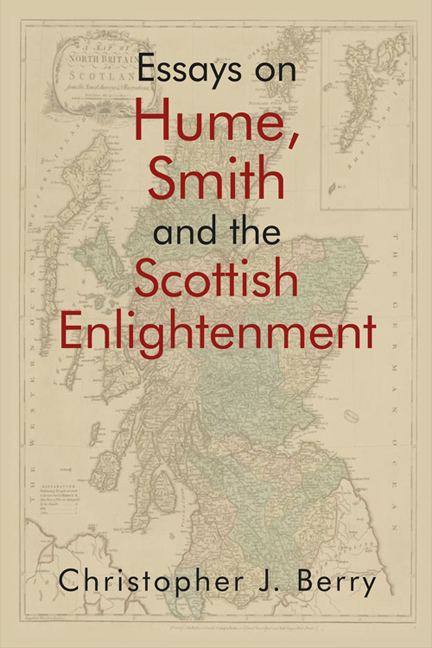10 - Lusty Women and Loose Imagination: Hume’s Philosophical Anthropology of Chastity
Published online by Cambridge University Press: 06 May 2021
Summary
Hume's account of what John Rawls labels the ‘circumstances of justice’ is well known, not least because of Rawls's (1972: 127) description of it as ‘especially perspicuous’. Rawls divides these ‘circumstances’ (not without some blurring at the edges) into objective and subjective. In the guise of the dynamics of sex and reproduction, it is an aspect of the former, chiefly, that is the subject of this chapter. However, this aspect is not discussed by Rawls and, on the implications of this, Susan Moller Okin (1989: 27), for one, has taken him to task; he merely assumes that the family is just. Okin also, and more forcefully, extends this critique to Hume. She claims that, according to him, the circumstances of family life are such that justice is not the appropriate standard to apply to them. In support of her thesis she quotes a passage from Hume where he remarks that ‘between married persons the cement of friendship is by the laws supposed so strong as to abolish all division of possessions and has often, in reality, the force ascribed to it’. However, she then points out this was an idealisation because, in practice, he was justifying ‘coverture’, the legal fiction whereby married women were non-persons (Okin 1989: 30; quoting M 3.7/SBNM 185).
My concern here is with sexual regulation, and its necessity in the light of the dynamics of sex and reproduction, in Hume's philosophy. The focus is on his treatment of chastity. I will endeavour in my analysis to uncover some more general anthropological assumptions and their bearing on ‘circumstances of justice’.
There is one aspect of Hume's account that has not attracted much comment. At the beginning of his discussion, Hume compares the situation of humans to that of animals:
Of all the animals … there is none towards whom nature seems at first sight to have exercis’d more cruelty than towards man, in the numberless wants and necessities with which she has loaded him and in the slender means which she affords to the relieving of these necessities. In other creatures these two particulars generally compensate each other. (T 3–2–2.2/SBNT 484–5)
- Type
- Chapter
- Information
- Essays on Hume, Smith and the Scottish Enlightenment , pp. 163 - 183Publisher: Edinburgh University PressPrint publication year: 2018



